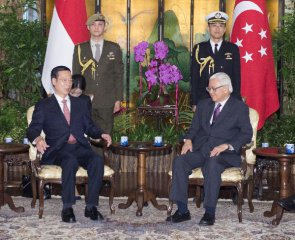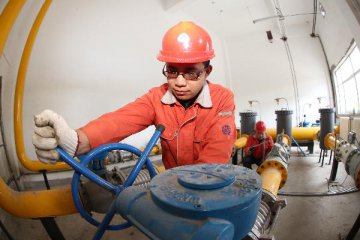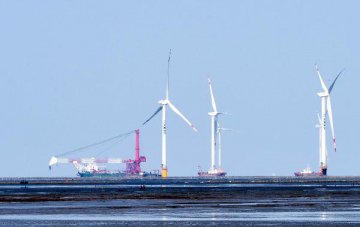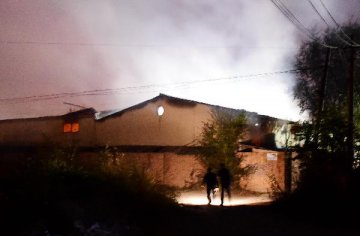
New official data has showed Chinese consumer inflation running at a low level and factory product inflation remaining in negative territory, triggering worries about sluggish market demand and deflation pressure.
China's consumer price index (CPI) was 1.6 percent higher in September than in the same month last year, down from a 2-percent year-on-year rise in August, said the National Bureau of Statistics (NBS) on Wednesday.
On a monthly basis, consumer prices in September rose 0.1 percent. The producer price index (PPI), which measures wholesale inflation, has contracted for 43 consecutive months, with the latest monthly decline of 0.4 percent slightly down from the 0.8-percent decline in August.
On a year-on-year basis, the PPI declined 5.9 percent in September, the same as in August. The PPI and CPI are interrelated, as the PPI reflects prices in production, while CPI reflects prices at the point of consumption.
Price fluctuations usually first appear in the production link and are then passed on to consumers. Excessive inflation can hurt the economy, but reasonable inflation indicates healthy demand and economic growth.
The slight slump in consumer inflation aggravates worries about sluggish demand in China and will encourage the government to introduce more stimulus measures, according to a Bloomberg report. Low prices amid the economic downturn mean monetary policies need to further ease, said Bank of Communications analysts Liu Xuezhi.
Prices of raw materials and processing industries are all in deep contraction. Oil and natural gas mining, oil processing and ferrous metal processing are the sectors experiencing deepest price contractions. Falling commodity prices and weak domestic demand are mainly responsible for the weak PPI reading, according to HSBC research.
The weak PPI highlights severe overcapacity and low domestic investment, said Zhao Yang, chief China economist of Japanese financial institution Nomura. Prolonged weak prices will weigh on firms' profits and add to their debt burdens, said Qu Hongbin, chief China economist at HSBC.
Persistent deflationary pressure creates room for further fiscal easing, including cuts to interests rates and reserve requirement ratios (RRR), according to investment firm China International Capital Corporation.
Average CPI inflation in the first nine months of 2015 came in at 1.4 percent year on year, which is much lower than the government target of 3 percent and also below the 2.2 percent reading from Jan.-Sept. 2014. The monthly CPI drop was mostly caused by lower food (especially fruit and vegetable) price inflation, which eased to 2.7 percent year on year from 3.7 percent.
Pork prices continued to rise, up slightly month on month, but pork price inflation eased to 17.4 percent year on year in September from 19.6 percent in August. CPI inflation will remain subdued and PPI inflation is likely to remain in deep negative territory due to overcapacity, said Zhao.
Chinese authorities have made a number of moves to prop up the economy. The central bank has cut banks' RRR four times in the past seven months and axed interest rates five times in nine months.























Latest comments